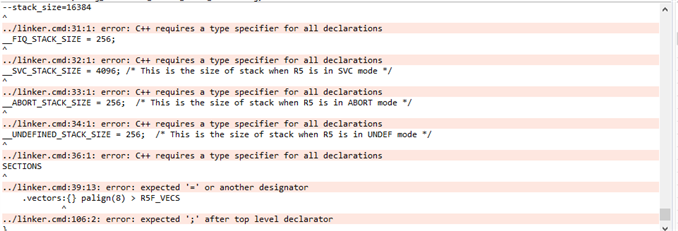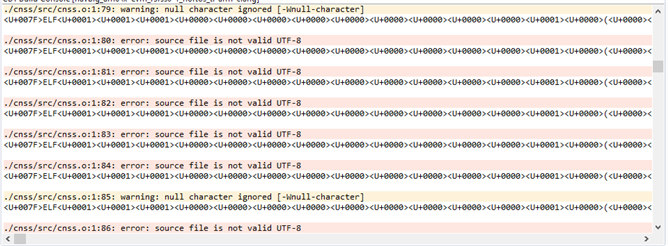We encountered some linker errors after we added "-x c++" option in .projectspec file. We want to run an example lwip-enet project as c++. Although we changed the makefle of the project according to helloworld-cpp example, it raised some errors about std libs like iostream. After that we added "-x c++" option to the projectspec then we got some new errors that doesn't even related with our changes. I just want to learn about what does "-x c++" option stand for in projectspec? Also, what are some concerns that I should to take a look while migrating a c project to c++?
You can see some errors at the below:





